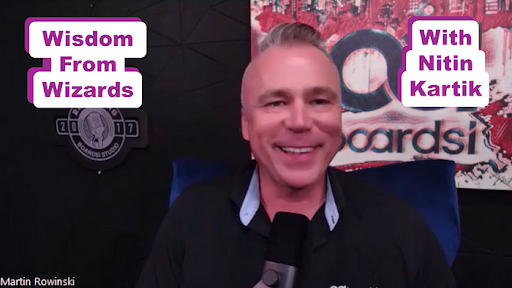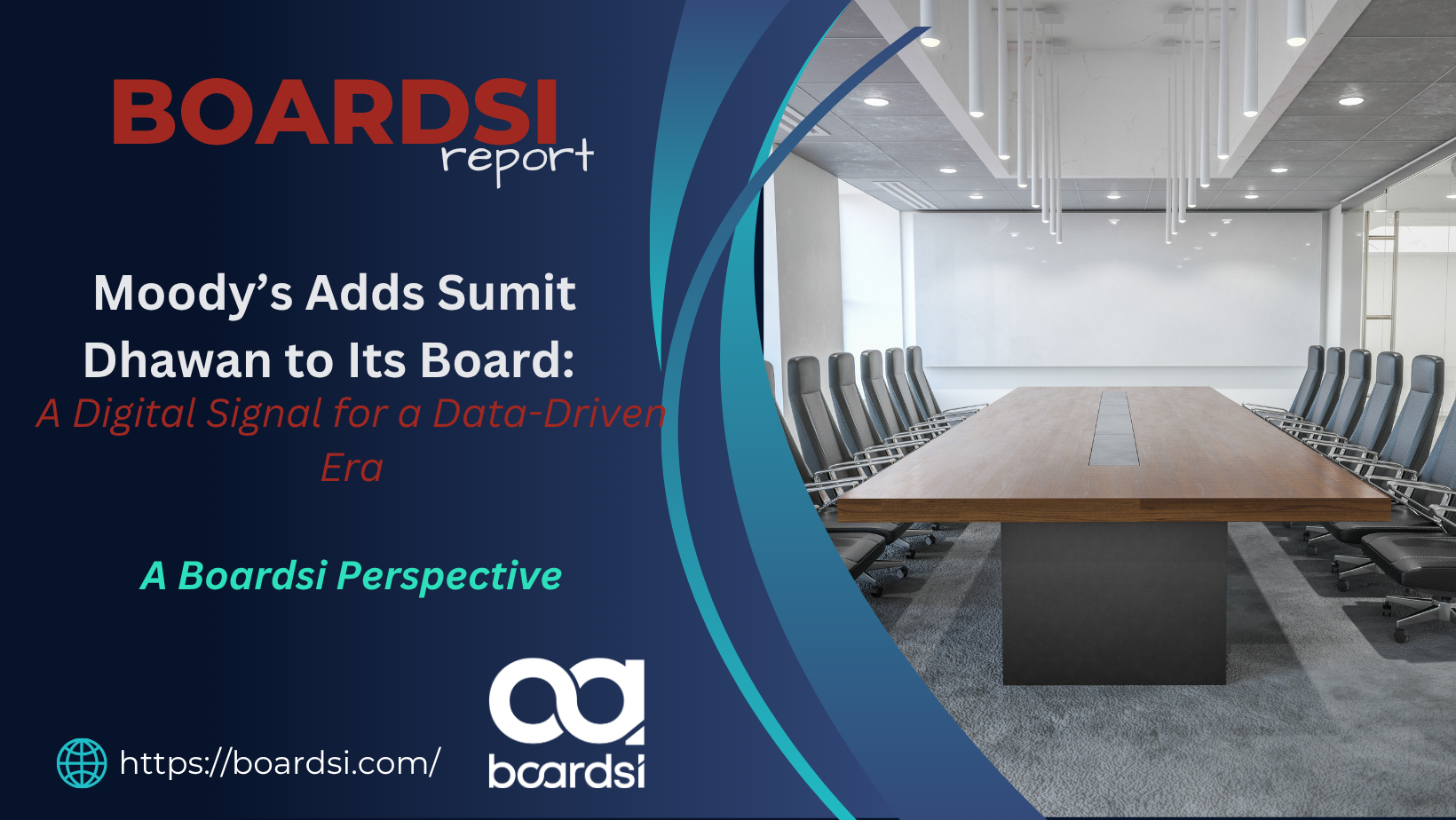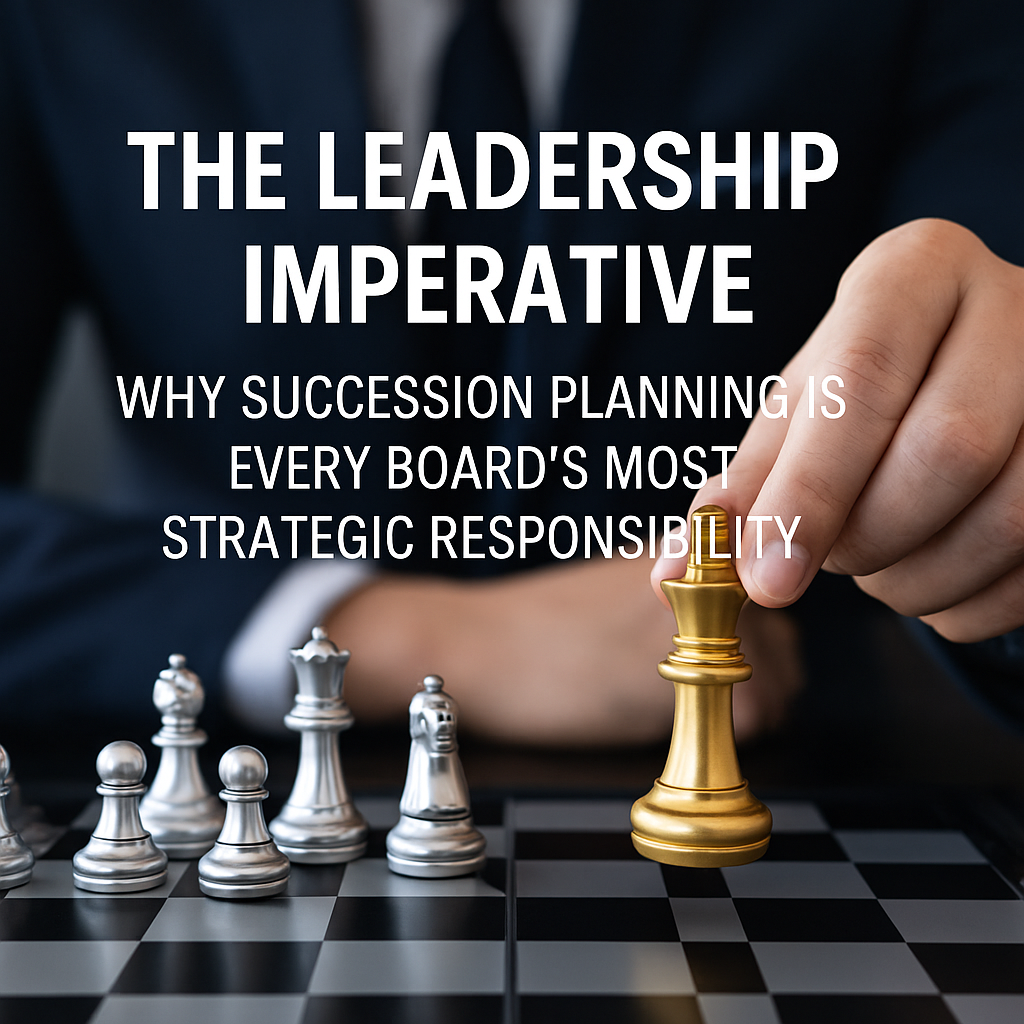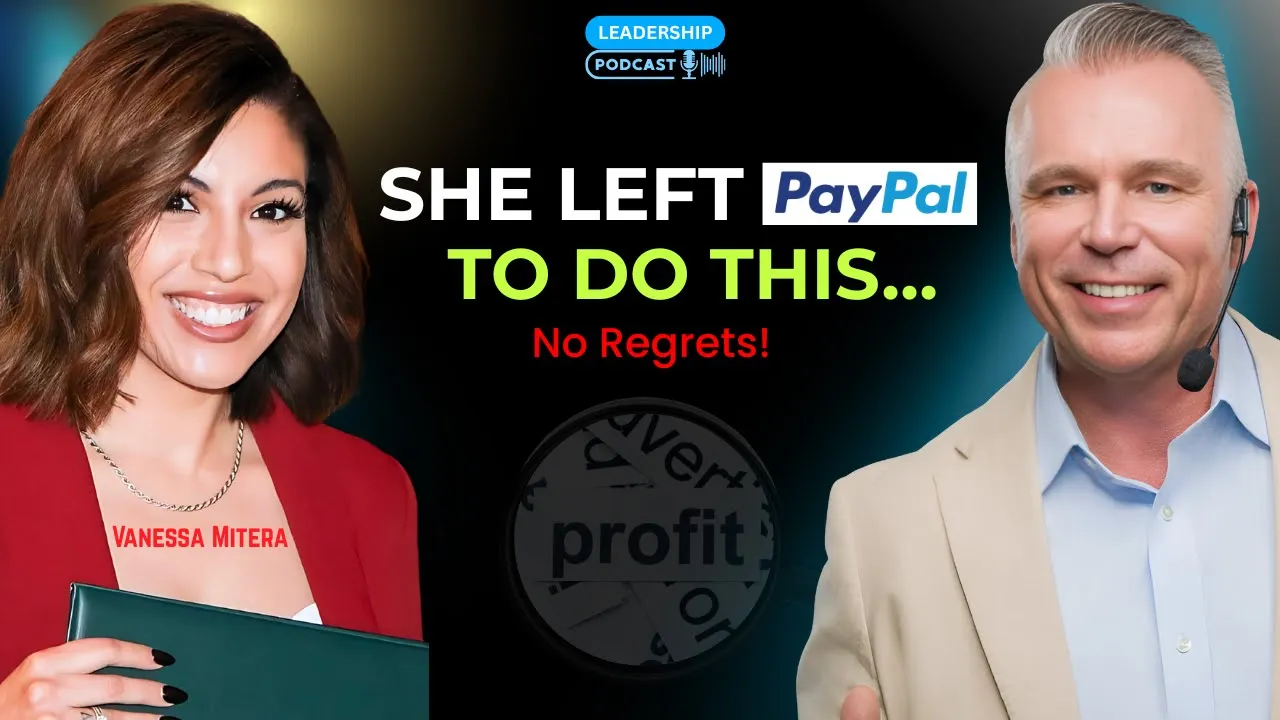As CEOs of fast-scaling tech companies, we often romanticize autonomy.
You know the feeling: calling the shots without needing permission, trusting your gut, and moving faster than anyone else in the market. Autonomy is one of the reasons many of us became founders in the first place.
But what if autonomy — unchecked and unchallenged — starts holding us back?
In a recent episode of Wisdom From Wizards, I spoke with Martin Rowinski, CEO of Boardsi, who brought a refreshing perspective to the conversation. Martin’s company connects companies with top-tier board and advisory talent. But what he really delivered in our 2-minute conversation was something deeper: a reframe of how visionary leaders should think about control.
“I’ll take a dynamic board any day.”
That was Martin’s immediate response when I asked:
“Would you rather have complete autonomy to run your company as you wish, or be part of a dynamic, high-powered board that challenges your decisions — and why?”
His answer wasn’t just a plug for his business. It was a philosophy. Martin explained that his most valuable insights have come not when things went smoothly, but when board members or advisors pushed back and forced him to rethink a decision.
“I enjoy working with other partners. I enjoy working with our board. You get so much out of it. The lessons, the ability to pivot — it’s endless.”
There’s something powerful about hearing this from someone who spends his days building boards for others. If anyone could’ve justified a “go it alone” mindset, it’s Martin. But instead, he doubled down on collaboration.
Let’s unpack why his insight matters — especially for CEOs of scaleups navigating product pivots, rapid growth, investor relations, or even new markets.
The Trap of “Founder Knows Best”
In the early stages of building a company, you have to rely on your own judgment. Decisions are made fast, often with incomplete information. Your conviction, clarity, and charisma can be the difference between survival and failure.
But as you scale, the stakes grow — and so does complexity. What worked at $2M in ARR starts to break down at $10M. Hiring decisions that felt intuitive now affect entire departments. Market shifts that were once negligible now threaten your core revenue stream.
At this point, a founder who surrounds themselves with only “yes people” starts to plateau.
The irony? The same independence that fuels early traction becomes a liability at scale.
What Makes a Great Board, According to Martin
Martin didn’t just advocate for boards — he advocated for the right kind of board.
Here’s what he’s seen separate high-impact boards from performative ones:
1. Challenge Without Chaos
Boards should ask tough questions, not wage political battles. The best ones create constructive friction — the kind that makes decisions sharper, not slower.
2. Perspective at a Premium
An effective board blends operational experience with outside perspective. Martin noted that diverse perspectives are especially useful in unpredictable markets, where no one playbook applies.
3. Advisors, Not Anchors
Great boards don’t just preserve governance — they unlock strategy. They aren’t there to clip the CEO’s wings, but to help them fly smarter and further.
“A good board challenges your assumptions, but also roots for your success,” Martin shared.
It’s this blend of accountability and support that makes the board not just a formality — but a force multiplier.
The Hidden ROI of Board-Driven Growth
At Caribou Strategic, we work with CEOs of tech scaleups navigating intense periods of change: new product launches, aggressive fundraising goals, leadership transitions, or competitive repositioning.
One pattern I’ve noticed among companies that break through these transitions?
They don’t just have boards on paper. They use them.
Here’s what that looks like in practice:
- Faster pivots when markets shift — because the board saw signals early.
- Stronger fundraising rounds — because the board helped position the narrative.
- Clearer executive hires — because the board provided benchmarks and talent network access.
- Higher strategic confidence — because decisions were pressure-tested before going live.
Martin’s conversation reinforced this: a dynamic board isn’t a governance cost. It’s a growth asset.
So Why Do Some CEOs Still Resist?
Despite the clear benefits, many CEOs hesitate to empower their boards. The reasons vary:
- Loss of control
CEOs worry that outside voices will dilute their vision. In reality, strong boards help clarify that vision — not rewrite it. - Ego and identity
Founders can mistakenly equate board feedback with personal failure. But growth-minded CEOs use board input as a performance advantage. - Poor past experiences
Some boards are poorly assembled, misaligned, or overly reactive. That’s why Martin’s company, Boardsi, focuses so heavily on fit — not just credentials.
Bringing It Full Circle: Wisdom From Wizards
This conversation with Martin is part of a broader series I host called Wisdom From Wizards — a fast, insightful video series where we spotlight decision-making moments with top tech executives.
The series is brought to you by Caribou Strategic, where we help tech scaleups stand out and succeed through sharp positioning, focused go-to-market strategy, and executive clarity.
Each episode challenges assumptions and gives CEOs a quick dose of perspective — because the biggest breakthroughs often come from better questions, not just better answers.
From Insight to Action: What Should You Do?
If you’re a CEO reading this, here’s a simple challenge:
- List the last three pivotal decisions you made.
Did you invite challenge before acting? Or did you go solo? - Evaluate your current board or advisory structure.
Are they actively helping you grow — or passively approving updates? - Consider where you’re going.
Are you preparing for a raise? Entering a new market? Rolling out a new pricing model? A strong board can pressure-test those moves before the market does.
If you’re not getting that kind of value from your current setup, it might be time to rethink your board.
And if you don’t have a group of peers or advisors to push your thinking every month, that’s where Caribou Strategic comes in.
Final Word from Martin
As we wrapped our short conversation, Martin left me with this:
“When you’re open to being challenged, you open yourself to learning — and that’s where real growth happens.”
He’s right. And if you’re serious about scaling — past the noise, past the competition, past your own limits — you need more than autonomy.
You need sharp, strategic voices around the table. Voices that question you. Stretch you. And, ultimately, help you win.
#MartinRowinski, #Boardsi, #BoardroomInnovation, #TechLeadership, #StartupScaling, #StrategicLeadership, #AdvisoryBoard, #GovernanceMatters, #WisdomFromWizards, #CaribouStrategic, #ScaleWithStrategy









